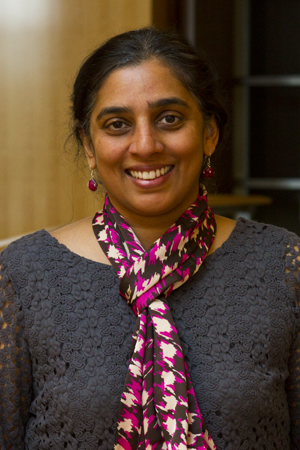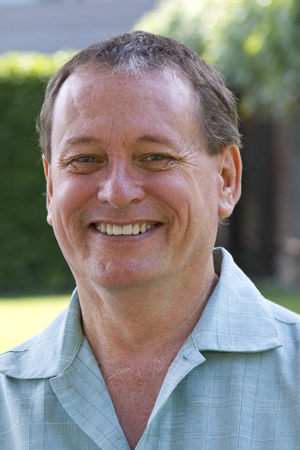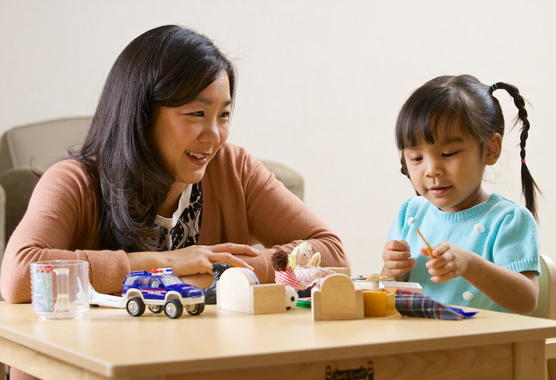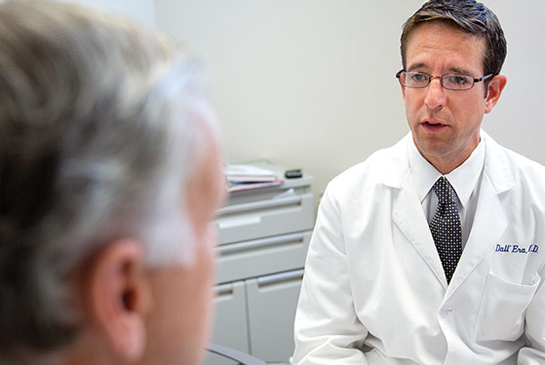Clinics and Programs
Transition to Adulthood Clinic
The Transition to Adulthood Clinic helps young people with neurodevelopmental disabilities ages 16 to 26 get the care they need. The clinic works together with the MIND Institute's doctors and staff to support young people and their families during their transition to adult healthcare. They also connect families with community organizations and services that can provide additional support. The clinic staff will talk about common things that young people with neurodevelopmental disabilities often need when they become adults, like finding a place to live, making decisions with help, getting education, and job opportunities.
The Transition Clinic is led by Gayatri Mahajan, a developmental-behavioral pediatrician with extensive experience working with transition age autistic youth and adults, as well as those with intellectual disability and other neurodevelopmental disabilities. Additional team member includes Steve Ruder, a staff member from the Center for Excellence in Developmental Disabilities (CEDD). Steve has extensive expertise in advocacy, school transition, employment and supported decision making.
Neurodevelopmental disabilities include autism, intellectual disability, cerebral palsy, genetic syndromes such as Down syndrome, fragile X syndrome and more. Although individuals with neurodevelopmental disabilities and co-occurring mental health conditions will be cared for, individuals with mental health conditions like anxiety, depression, and ADHD without cooccurring neurodevelopmental disabilities would be best served with a referral to psychiatry.
-

Gayatri Mahajan, M.D.
Gayatri Mahajan is an experienced pediatrician who has dedicated many years to primary care pediatrics before pursuing her fellowship in developmental-behavioral pediatrics. With a keen interest in the field, she focuses her clinical and research efforts on the health transition from pediatrics to adult medicine for individuals with neurodevelopmental disabilities. She is also actively involved in education and outreach initiatives aimed at adult primary care and specialty providers.
Her expertise extends to the developmental follow-up of high-risk infants and toddlers, including the early diagnosis and treatment of autism and cerebral palsy. As a physician within the Regional Center, she has garnered valuable experience advocating for the unique healthcare requirements of adults with developmental disabilities, both within hospital settings and in the community. She is a strong advocate for compassionate end-of-life planning and advance directives for aging adults with developmental disabilities. She has contributed significantly to this cause by serving as the Chair of a statewide end-of-life workgroup, providing recommendations to the Association of Regional Center Agencies (ARCA). Additionally, she has held the position of Chair for the ARCA Physicians group, showcasing her commitment to enhancing the care and well-being of individuals with developmental disabilities throughout their lifespan.
-

Steve Ruder
Steve Ruder is a dedicated member of the MIND Institute's Resource Center, which is part of the Center for Excellence in Developmental Disabilities (CEDD). In his role, he provides invaluable support to families and individuals with disabilities, particularly in areas related to high school transition, adult services, and employment. Steve takes pride in assisting individuals with disabilities and their families by addressing their questions and concerns.
Additionally, Steve serves as the facilitator for the Northern California Business Advisory Council. Through this role, he collaborates with businesses in the region to promote inclusive practices and employment opportunities for individuals with disabilities. His efforts contribute to fostering a supportive and inclusive environment for all. Steve extends his support to families by addressing inquiries related to supported decision-making. He guides them through the process and provides information and resources to help them make informed decisions regarding the need for conservatorship.
Transition to Adulthood Resources
Along with the online resources we provide on this website, you are welcome to visit the Resource Center located at the MIND Institute (directions) browse our collection of resources, and utilize our computers for research.
Physician Referral Center
UC Davis Health providers can enter a consult to the MIND Developmental and Behavioral Pediatrics and enter Transition to Adulthood Clinic as a comment. Non-UC Davis Health Providers: Please submit a referral through UC Davis Health’s Physician Referral Center or by phone at 800-482-3284 option 3. Make sure to indicate the Transition to Adulthood Clinic as the reason for referral.
To learn more about our referral process, call our main number at 916-703-0300.



